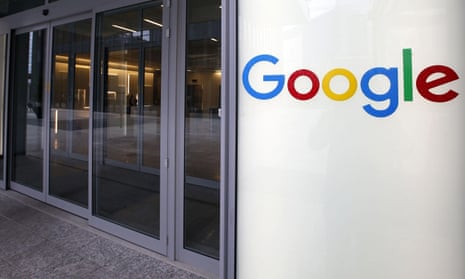George Osborne’s claim that the government secured a major corporation tax deal with Google appear to be unravelling after it emerged that a quarter of the £130m recovered by HM Revenue & Customs related to the US company’s share options scheme.
Filings by Google’s UK subsidiary show that £33m of the funds paid to the Treasury followed a wrangle over share options handed to staff, which the US business had argued were exempt from UK tax.
The company’s accounts show that the government was only able to claw back less than £100m in corporation tax from Google for the 2005-2014 period, and not the £130m the chancellor claimed. MPs and foreign governments have criticised the deal for allowing Google to generate billions of pounds in profits from its UK business and pay little corporation tax.
The Treasury select committee said last week that it would examine the deal, while several ministers have conceded that the outcome of the tax dispute was disappointing. John McDonnell, the shadow chancellor, said there was an important distinction between a settlement for unpaid corporation tax based on Google’s profits and the need to pay tax on share options for staff.
He said the low rate of corporation tax paid by Google, which was already “totally unacceptable”, needed to be independently examined. “If true, this is truly shameful behaviour by the chancellor. He dressed this deal up as a ‘major victory’, when in reality it was a defeat,” McDonnell said.
“It adds weight to my calls for why we desperately need the government to publish the detail of their deal with Google. Because having greater transparency of this Tory deal is the only way we can get to the bottom of whether or not taxpayers are getting value for money.
“Sadly, George Osborne refuses to do this and is now hiding himself as well as the true details of this deal from public scrutiny so as to avoid any awkward questions.”
Google settled a long-running tax dispute with HMRC last month following a six-year audit of the company’s UK business. It uses a complex web of subsidiaries that allows the US parent operation to divert profits from Google’s non-US businesses to the low-tax territory of Bermuda.
Critics of the tax settlement have calculated that Google generated sales of £24bn in the UK between 2005 and 2014. It has reported profit margins of between 25% and 30%, giving an estimated profit of about £7.2bn.
As it already agreed to pay about £70m in addition to the £130m settlement, Google’s effective tax rate is between 2% and 3%, compared to the 20% headline rate of corporation tax.
Richard Murphy, a tax expert who advises the Labour leader, Jeremy Corbyn, on economic policy, said most major US corporations had attempted to depress their tax bills by charging subsidiaries the cost of share options to staff, and that all had been ruled out by HMRC.
He said it was unclear why HMRC had failed until now to force Google to comply. “What was already a poor deal for the government is now looking even worse,” Murphy said. “And it looks like HMRC’s mess-up. I would say it clearly shows that HMRC is under-resourced and is struggling to cope in negotiations with major corporations.”
A Google spokesperson said: “After a six-year audit by the tax authority, we are paying the amount of tax that HMRC agrees we should pay. Governments make tax law, the tax authorities enforce the law and Google complies with the law.”

Comments (…)
Sign in or create your Guardian account to join the discussion